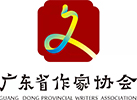
标题

标题
内容
首页 > 自定义类别 > 海上丝绸之路文学发展论坛 > 发言
文化认同与文化全球化
更新时间:2018-11-11 作者:欧金·乌力卡罗 (罗马尼亚)来源:广东作家网
当马可·波罗在热那亚向他的伙伴们口述《马可·波罗游记》时,“全球化”的概念还没有出现。当时马可·波罗刚刚结束了一趟不可思议的旅程,体验了一段独特的生活。他曾经从陆地进入未知的、被认为是危险的区域,却惊讶地发现,原来这些区域其实比亚得里亚海区域更安全,当地的人们也更加热情。
在当时那个年代,马可·波罗是如何成功完成这么大胆的举措的呢?即使在一千年后的今天,这依然是非常大胆,甚至可能有点危险的。这个问题的答案既简单又复杂。它很简单,因为我们可以这么理解:马可·波罗当时相对较快地进入了由巨大集权力量控制的疆域,虽然看起来它可能不是在每个小地方都有管辖势力,但它依然成功地在每个地方都实施其规定。这次旅行的成功秘诀在于“腰牌”的象征性力量,腰牌是金属制的牌子,而其形制和质地与官吏的身份等级相关。马可·波罗的叔叔从当时的中国皇帝忽必烈那里获得了腰牌,而正是腰牌所代表的忽必烈的权威确保了马可·波罗在他四处旅行时免受人为的伤害。实际上他所携带着的还有伟大的非物质价值,他是几乎不为当地居民所知的遥远文化的代表。
让我们回到马可·波罗的奇妙之旅。他带着教皇的和平信条,以及不同的理解和组织世界的方式。这是一种实用主义的方式,一种威尼斯商人所特有的方式,这些价值观正在回归到发明它们又把它们遗忘的世界。马可·波罗在忽必烈朝廷的立场也是如此:帝国统治中有不同种族和信仰的人,但晋升的唯一标准是能力。从中我们可以注意到今天全球化的一些特征:企业精英,消除种族或宗教偏见,对效率和生产力的完全开放态度。
但是今天的全球化也有一个在马可·波罗时代所没有的特征,复杂、快速的信息交流,资本和劳动力的快速流通,这些归功于非凡的技术革命。这是我们今天的额外优势。但是我们也有一个缺点,它在那个时代奏效,但在今天却步履蹒跚:严格遵守公认的规则和规定。寻求保护本土特色,反对规则和立法通常被视为对抗全球化。但这是不公正的指责,同样说全球化会破坏小型文化的指责也是不公正的。全球化并不意味着强加全球文化价值而否认本土特色;全球化意味着放弃经济保护主义,选择全球自由贸易,放弃诸多交流壁垒,促进丰富彼此的文化和精神内涵。回到马可·波罗,我们会注意到,无论他受到多么好的对待,无论他作为古代中华帝国的高级官员感到多么舒适,他从未打算放弃自己的文化身份。他没有放弃,但他成为了在欧洲传播中华帝国相关信息、中华文化和价值观的桥梁。当他向他的朋友鲁斯蒂谦口述《马可·波罗游记》时,马可·波罗以他的方式践行着一种意义上的全球化,我们应该好好检视这种方式,因为它蕴含着后来成为当代全球化现象的基本特征。
如果我们将全球化理解为自由贸易时代,那么在尊重、认同彼此特征的伙伴之间自由、快速地进行信息以及文化价值观的交流,已成为一种有益且不可阻挡的现象。
正如我所说,全球化预示着大量的贸易和交流。对彼此文化的相互翻译和深刻了解,是真正进入“国际赛道”的唯一途径。这种文化行为总是要先行于与他国建立新的商业和经济关系。文化了解是保证密切关系的方式。这也正是马可·波罗以他自己的方式所践行的事情,当他在描述中华帝国时,他打开了通向遥远邻居的大门,敦促那些勇敢的有志之士跨出那一步,越过门槛,越过想象中的将我们分开而不是连接我们的门槛。
今天,我们拥有现代化的交通和运输工具,我们可以获得丰富的物质和文化产品。我们所要做的就是要知道,只要我们制定所有全球化参与者一致认同的规则,一切皆有可能。这样全球化可以带来全世界的繁荣与和平,人们安居乐业。
这难道不是我们最希望得到的吗?
Cultural Identity And/Or Cultural Globalization
Eugen Uricaru (Romania)
As Marco Polo was dictating The Travels of Marco Polo to his cellmate in Genoa, the notion of “globalization” didn’t, of course, exist yet.
Marco Polo had just concluded an amazing journey and an unique life experience. He had traveled by land into unknown, potentially dangerous territories that had proven surprisingly safer and more welcoming than the places around the Adriatic, controlled by the Venetian Republic but subjected to attacks from their Genovese rivals.
How was it possible to complete in those times such a bold enterprise that even now, almost a thousand years later, seems very daring, maybe even dangerous? The answer is both simple and complex. It is simple if we consider that Marco Polo entered, relatively quickly, the territory controlled by a huge power that was able to impose its regulations even if it wasn’t visibly present at every milestone. The secret of this successful journey lied in the symbolic power of the paitza , a metal medal, the quality of the metal signifying the rank and privilege of its bearer. Marco Polo’s uncle had received the medal from Kubilai, the Emperor of China, himself, and his authority – expressed through the paitza – safeguarded Marco Polo from any human enemy during his extensive travels.But he was in fact the carrier of great non-material values, he was the representative of a faraway culture almost unknown to the dwellers of Central Asia.
But let’s go back to Marco Polo’s wondrous journey. He was carrying the Pope’s message of peace, as well as a different way of understanding and especially of organizing the world. It was a practical way, specific to the Venetian merchants who were great accountants and idolized the concept of inventory. These were values that were returning to the world that had invented - and then forgotten – them. Marco Polo’s position at Kubilai’s court was not an exception: the imperial administration was populated with people of very different ethnicities and creeds. The only criterion for promotion was competency. We can note a few traits of today’s globalization: corporate meritocracy, the lack of racial or religious prejudice, a complete openness to efficiency and productivity.
But today’s globalization also has a characteristic that was barely noticeable during Marco Polo’s times: the complex and fast communication of information, the rapid circulation of capital and labor, which have all been made possible thanks to an extraordinary technological revolution. This is our extra advantage today. But we also have a disadvantage: something that worked without fail in those times, but is faltering today: the strict observance of accepted rules and regulations. Opposing rules and legislations is often seen as a fight against globalization, a fight for preserving local specificity. But this is dishonest, as is the blaming of the damaging of smaller cultures on globalization. Globalization doesn’t mean imposing global cultural values instead of local specificity; globalization means renouncing economic protectionism for free global trade and giving up on communication barriers in favor of mutual cultural and spiritual enrichment. Going back to Marco Polo, we will notice that no matter how well he was treated, no matter how comfortable he felt as a highly ranked administrator in the Chinese Empire, he never contemplated giving up his own cultural identity. He didn’t give it up, but he became a vessel for circulating information about the Chinese Empire, for spreading Chinese culture and values in Europe. As he was dictating The Million to his friend Rustichello, Marco Polo was performing globalization in a way that we should examine, because it was holding the essential traits of what would later become the contemporary phenomenon of globalization.
If we understand globalization as an era of free trade, free and rapid exchange of information and cultural values, performed by consensual partners that respect each other’s identities, this becomes a beneficial, unstoppable phenomenon.
As I was stating, globalization presupposes intense trade and exchange. Mutual translations, a profound knowledge of the other’s culture, are the only way to access an authentic international circuit. This action of cultural offer always precedes the establishing of new commercial and economic relationships with other nations. Cultural knowledge is a guaranteed way towards closeness. This is what Marco Polo did, in his own way, when he described the world of the Chinese Empire – he opened the door to the faraway neighbor, urging the valiant ones and the interested ones to take the necessary step, to cross the threshold, the imaginary threshold that separates us instead of connecting us.
Today, we have modern instruments for communicating and for transportation, we have access to an abundance of material and cultural goods. All we have to do is be aware that everything is possible as long as we establish rules that are unanimously agreed upon by all those involved in globalization. Then, globalization can become a solution for prosperity and peace around the world, and each person will be able to enjoy peace and prosperity in their own way
Could we wish for anything more?